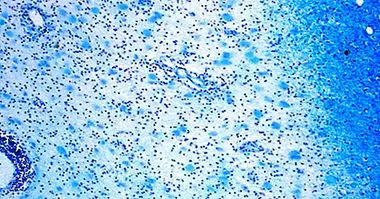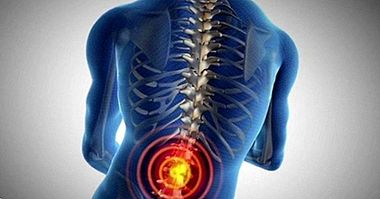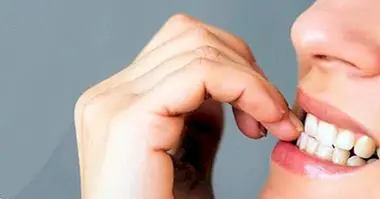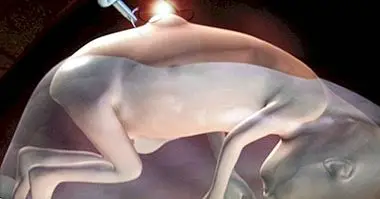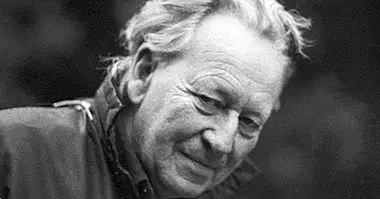Hypersomnia: types, symptoms, causes and treatments
The dream is an essential process for our survival and the maintenance of our capabilities. When tiredness can or we are sleepy, our energy level and our motivation are resented and we lose the desire to do things. We can not concentrate and our judgment and ability to analyze diminish, as well as our performance.
Fortunately, after sleeping an adequate number of hours we recover our energy and we recover our energies and maintain a state of normative vigilance and attention. However, there are people whose sleep periods are altered in time and quality of sleep. This is the case of insomnia or its opposite, the hypersomnia .
- Related article: "The 7 main sleep disorders"
Hypersomnia
It is understood by hypersomnia sleep disorder characterized by the presence of excessive sleepiness despite having maintained a previous sleep period of at least seven hours. It is a disomnia, a type of sleep disturbance that affects the schedule, quantity and quality of sleep.
In hypersomnia the subject in question remains drowsy much of the day and it usually costs him to wake up after a period of normative sleep or that can even last nine or more hours, this sleep may not be repairing and not allowing him a real break. It may involve falling out of sleep in a manner similar to narcolepsy. Thus, someone with a hypersomnia can sleep for long periods of time as well as sleep during the day.
To consider the existence of this disorder, episodes of drowsiness should occur at least three times a week (although it can occur practically every day) for at least a month. The hypersomnia usually behaves a great dysfunctionality for those who suffer from it, diminishing their abilities and performance both at the work and personal and social levels. In fact, the person can get to sleep in situations of high risk, such as when they go to the wheel of a vehicle.
Apart from the lack of energy, this disorder can cause emotional disturbances as anxiety and irritability problems, demotivation and apathy. They also usually have memory problems and a certain mental and physical slowdown. At an organic level, it can generate changes and weaken the immune system.
Types of hypersomnia
Depending on whether there is a known cause or not, We can establish different types of hypersomnia . It is important to bear in mind that although episodes of sudden sleep also occur in narcolepsy, it is another pathology with its own and differentiated characteristics, so that we would not be talking about a type of hypersomnia.
Primary or idiopathic hypersomnia
It is known as a hypersomnia disorder. In this case the causes that produce this alteration are not known, there being a period of normative rest and without which the excess of sleep due to organic causes can be explained . The symptoms are those described above.
Within the primary hypersomnia can also be known as Kleine-Levine syndrome, which acts recurrently and persistently causing periods of several days or weeks of intense sleep.
It is common for those who suffer it to sleep up to 20 hours in a row and remain tired the rest of the time , with a high instability, irritability and disinhibition of impulses that leads to hyperphagia and hypersexuality. It is not uncommon for hallucinations and speech and memory problems to appear. These episodes will occur recurrently, but in the periods of time that pass between sleep and behavior are normative.
Secondary hypersomnia
The presence of persistent sleep during the day or difficulties to wake up can also have a specific and specific cause to explain it.
Within the secondary hypersomnia we can find those due to sleep deprivation be for not having enough sleep or because it is frequently interrupted, the effect of different drugs or drugs or the existence of a medical or psychiatric disorder that explains it. In these cases the hypersomnia would not be a disorder but a symptom of this alteration.
Causes of this problem
The causes of hypersomnia are largely unknown Today. For the diagnosis of hypersomnia as a primary disorder, it is necessary that the symptoms are not explained better by the presence of another pathology or as a result of substance abuse or sleep deprivation, or that although they may occur together they do not justify hypersomnia.
Thus, although it is possible to present sleep problems due to the persistent absence of this, the consumption of substances or certain problems of medical origin, but in this case it would be talking about a hypersomnia secondary to these and not hypersomnia as a disorder per se.
Even if the cause is not fully known, the possibility of the presence of alterations in the limbic system that can explain the presence of behavioral changes in cases of Kleine-Levine syndrome. A deficit in the synthesis and transmission of noradrenaline could also be an element to take into account when trying to explain this disorder. A possible injury in the brain areas responsible for sleep regulation could also generate this problem.
- Related article: "Limbic system: the emotional part of the brain"
What to do? Treatment
Hypersomnia is an annoying and invalidating problem for those who suffer from it and that can greatly limit their lives and even precipitate dangerous accidents for their own survival. Your treatment is essential.
In this sense, it is recommended that at a behavioral level we try to avoid the use of heavy machinery or vehicles, as well as trying to maintain the best possible sleep hygiene. Sport is also a great help to stay active and reduce the feeling of sleep in the moments after the exercise. In sleep hygiene it is recommended establish specific hours to sleep and wake up , as well as facilitate the entry into the dream at the normative moments such as the avoidance of elements that require attention or noise.
At the psychological level, cognitive-behavioral techniques are also used that can be used to confront the problems derived from the disorder and to increase and help focus attention. The subject is also trained in the detection of the first signs of sleep, and apply to them several exercises both physically and mentally to increase the level of consciousness and physiological activity .
It is very useful avoid the consumption of depressant substances such as alcohol and other drugs with the same effects. The use of drugs and excitatory substances may be prescribed. Some antidepressants such as imipramine or MAOIs have also been used as a treatment, although caution should be exercised with other health aspects such as blood pressure.
Bibliographic references:
- American Psychiatric Association. (2013). Diagnostic and Statistical Manual of Mental Disorders. Fifth edition. DSM-V. Masson, Barcelona.
- Bassetti, C.L. & Dauvilliers, Y. (2011). Idiopathic hypersomnia. In: Kryger MH, Roth T, Dement WC, eds. Principles and Practice of Sleep Medicine. 5th ed. Philadelphia, PA: Elsevier Saunders.
- Erro, M.E. and Zandio, B. (2007). Hypersomnias: diagnosis, classification and treatment. Annals of the Navarre Health System; 30. Hospital of Navarra. Pamplona.
- Guilleminault, C. & Brooks, S.N. (2001). Excessive daytime sleepiness. A challenge for the practicing neurologist. Brain; 124: 1482-1491.


